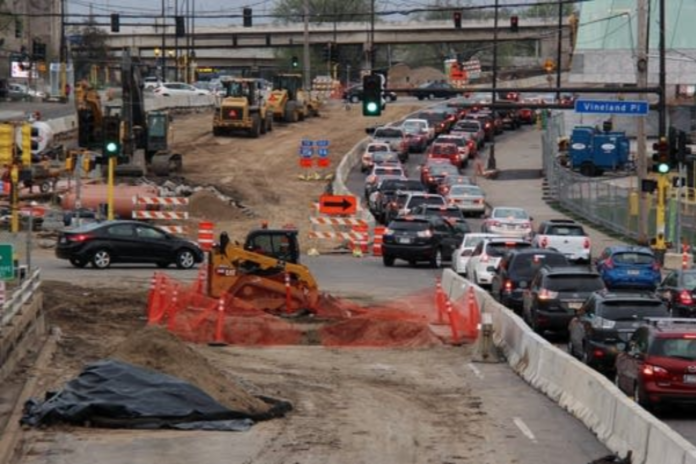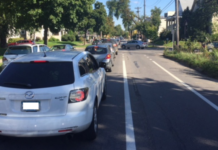Twin Cities traffic is bad and only getting worse. When commutes encounter congestion over a quarter of the time, solutions need to appear to solve the dilemma. With statistics like “the average driving speed in the Kansas City metro area is 40.1 miles per hour, compared with 29.4 mph in the Twin Cities” and “five of the worst 100 bottlenecks in the U.S. were in the Twin Cities,” the frustration of the metro is palpable.
Margaret Anderson Kelliher, Commissioner of the Minnesota Department of Transportation, stated, “it’s imperative that we identify a long-term, dedicated funding solution to invest in transportation, improve our system’s efficiency and keep Minnesotans moving.”
It’s good to look forward to future solutions, but it is important to get to the root of the problem behind our congested routes. What is the real reason that there is such a mismanagement of traffic congestion in the Twin Cities? How does Minnesota plan on countering this problem?
Of course, the answer is political.
The Metropolitan Council is responsible for planning transportation in the Twin Cities metro area. Even in its ten-year forecast, they hypothesized that “congestion will not be eliminated or significantly reduced.” The Metropolitan Council wants to take advantage of cruel commutes to coerce Twin Cities residents onto metro transit and expand their financial stranglehold over transportation.
A simple guess at how to go about a highway construction project would be to increase the road’s capacity for traffic. Minnesota takes the opposite approach! Washington Avenue in Minneapolis has been reduced by two lanes, reserving the extra space for bicycles.
The Minnesotan departments responsible for reducing congestion have opted to prioritize trains and bicycle paths over roads and highways. “Improving the system’s efficiency and keeping Minnesotans moving” is shorthand politicking that appeases the masses while elevating an agenda. This is an understandably good agenda: having fewer carbon emissions and promoting healthy lifestyles is great.
However, the advancement of this agenda does not have to come at the expense of the average Minnesotan’s commute and wallet. Raising taxes to pay for better, broader, faster roads is a worthy sacrifice. But when it appears that the congestion is welcomed because impossible driving conditions force Twin Cities residents out of their cars and onto trains, buses and bicycles, that’s where the buck stops. The traffic problem may even be a thinly veiled attempt by the Walz administration to raise the state gas tax next year.
Will we let our streets be driven by ideology?
***
Do you like Alpha News? Help us reach more people in 2019 by donating today.

















